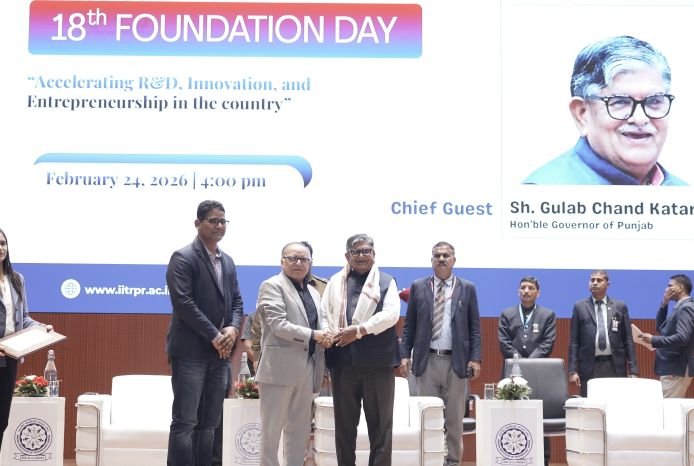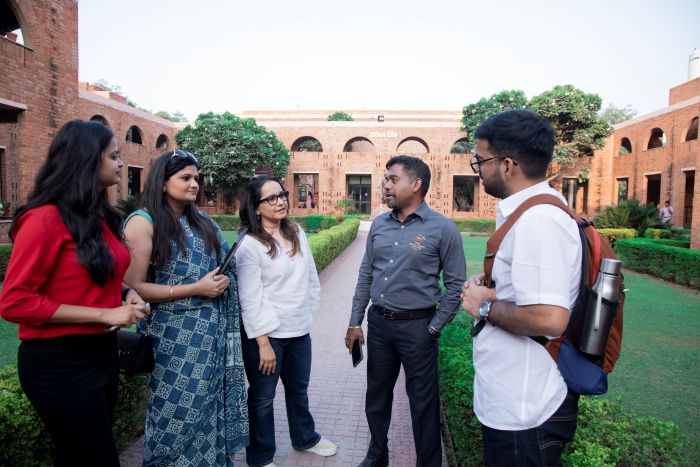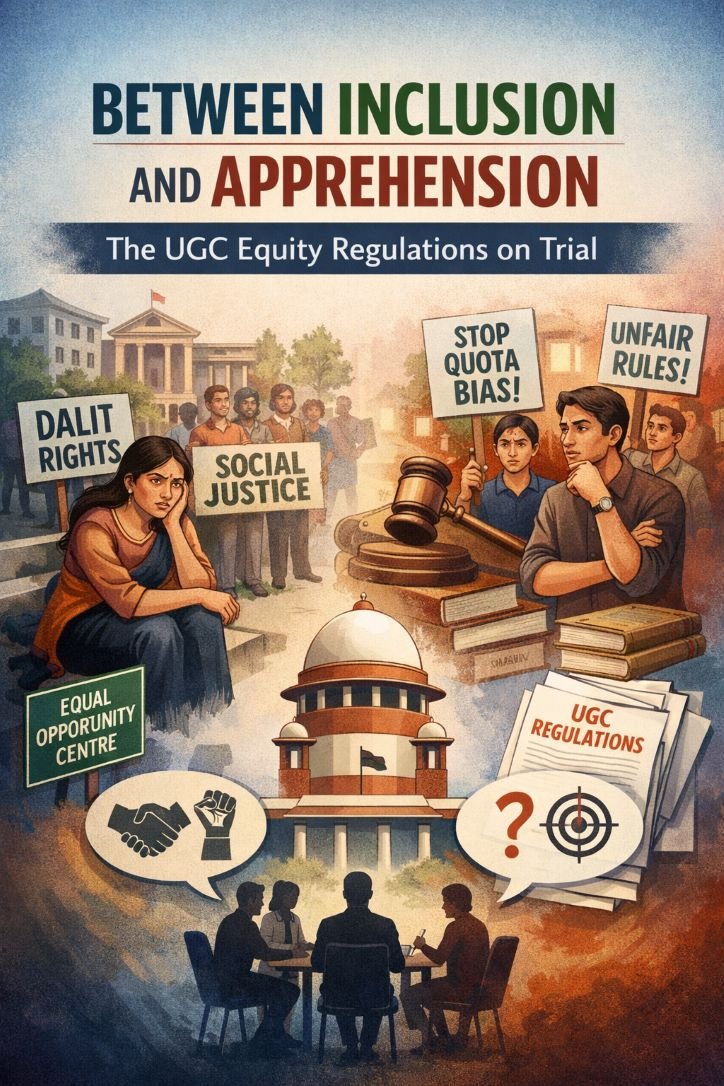
As the world revives from the pandemic, World Youth Skills Day 2022 is a chance to assess the need for skill development in a world undergoing remarkable socio-economic and technological changes. During this Decade of Action for the 2030 Agenda, the full engagement of young people in global processes is vital to generate positive change and innovation. And, World Youth Skills Day 2022 takes place amid concerted efforts towards socio-economic recovery from the COVID-19 pandemic that are interconnected with challenges such as climate change, conflict, persisting poverty, rising inequality, rapid technological change, demographic transition and others.
First a few startling facts:
One, the youth population will grow by more than 78 million between 2021 and 2030. Low income countries will account for nearly half of that increase. Education and training systems need to respond to this challenge. Two, the proportion of young people not in employment, education or training (the youth NEET rate) has remained stubbornly high over the past 15 years and now stands at 30 per cent for young women and 13 per cent for young men worldwide.
Young women and girls, young persons with disabilities, youth from poorer households, rural communities, indigenous peoples, and minority groups, as well as those who suffer the consequences of violent conflict and political instability, continue to be excluded due to a combination of factors. In addition, the crisis has accelerated several transitions the world of work was already undergoing, which add layers of uncertainty regarding the skills and competencies that will be in demand after the pandemic is overcome.
India’s demographic dividend opportunity is the longest in the world, available over five decades, from 2005 to 2055. India has the potential to emerge as one of the largest consumer economies in the world too, thanks to emerging economic dynamics and favourable demographics. The young and working population brings many unique possibilities for India’s future too. They include social mobility, economic growth, and a more inclusive and equitable society. “Both employability and entrepreneurship are the keys in enabling today’s youth to take the nation into the future. I feel convergence of endeavour among all the important players will play a significant role in the path of nation building,” says Santanu Mishra, Co-founder, and Executive Director, Smile Foundation.
India’s skills and education minister, Dharmendra Pradhan, in his message on the day said, “Skilled India will thrive and play a leadership role in the new world order. Let us commit ourselves towards removing access barriers to the world of work for everyone and making skilling a life-long process for an Aatmanirbhar Bharat.”
The Government through a concerted is focused on helping youth and there are several programmes aimed at skilling, re-skilling & upskilling. However, that ripple effect is still far cry.
#YuvaShakti for an #AatmanirbharBharat!
Through a concerted focus on making the youth employable, the Government has developed infrastructure & introduced programmes aimed at skilling, re-skilling & upskilling! pic.twitter.com/N9vs1YEi21
— MyGovIndia (@mygovindia) July 15, 2022
Meanwhile here are some reactions and quotes received by our platforms on the World Youth Skills Day 2022.
Irwin Anand, MD India & APAC, Udemy: “The penetration of technology, especially after the pandemic, has opened new doors for individuals as well as enterprises. Digitization and upskilling are key tools in not just empowering the country’s workforce but also in keeping up with new booming sectors in the economy. Course consumption in India in Q2 2022 has focused on technical skills related to security operations, computer programming, web testing automation, electronics, and cloud monitoring. Power skills like business etiquette also continue to gain focus among those seeking to sharpen their leadership capabilities. For greater employee development and retention, organizations should empower employees with continuous skill-based learning opportunities.”
“Financial investing is an intelligent way of creating a compounding effect on one’s wealth. But what about investing in yourself! The Return on Investment one gets when investing in upskilling and upgrading oneself is profound from a career perspective. Studies have shown that at least 92 percent of working professionals in India believe that a skills gap exists, with 76 percent of them expressing that they feel personally impacted by it in terms of promotions, increments, and alternate opportunities. One of our recent research has highlighted that the chances of getting a higher increment as compared to peers working on the same level increase dramatically once an employee adds additional role-specific skills. The recent surveys also revealed that about 53 percent of the employees interviewed believe that upskilling has influenced their salary hike. It has also been found that upskilling initiative has the potential to create 5.3 million new jobs by 2030 globally. Hence, this should be leveraged by the government bodies and there should be a focused approach on upskilling the Indian talent pool,” Shantanu Rooj, Founder and CEO, TeamLease Edtech
“The more opportunities we give to interns today, the more we help them develop technical skills to survive in the industry,” Navel Nazareth, the Co-Founder & CEO of Neo Aeon Media Solutions. On why digital marketing and PR agencies always preferred hiring interns over employees he adds: “Being from a creative industry, it is essential to have new talent and mindset in the office and internships help with just that. While the agency gets an extra set of helping hands, it is also a great opportunity for students and interested candidates to get a gist of how the agency works and get to know about their job role better before becoming an employee.”
Offering an advice on hiring interns he says, “When it comes to hiring Interns, they should be taken on board on the basis of their basic technical knowledge, why are they passionate in the industry & if they have an open mind towards learning new things, rather than what work experience they possess. It’s important to remember that it’s the job of the employer to impart certain knowledge to the minds of these interns and prepare them for the tough world filled with competition. The more opportunities we give to interns today, the more we help them develop technical skills to survive in the industry.”
Palka Arora Chopra, Sr Vice President, mastertrust, a financial services conglomerate: “Every individual should be able to manage their finances effectively. India needs a broader spectrum of programs related to financial literacy, and should these be a part of the education system. I agree with the need for this year’s theme, “Learning and skills for life, work, and sustainable development.”
Models in making
- Tata Communications has launched Talent Central , which is an intelligent AI-based platformthat brings together rich insights from across all talent systems to provide rich inputs to our employees for upskilling.
- Unisys India has provided financial aid that has helped upskill 1000 individuals who have made it into various career streams like Banking & Financial Services (30%), Retail & Marketing (40%), and IT (20%) while some (10%) opted for higher education. The “UNXT program”caters to individuals who have completed graduation or vocational courses. This program trains registrants in spoken English, life skills, values, and employability skills. These courses are approved by the department of collegiate education and the department of industrial training and employment, Karnataka and Andhra Pradesh. These short courses help us create industry-ready individuals. The second program called “Unnati” is a vocational training and social transformation program with guaranteed employment at the end of 35 days of training. This program is specially designed for students between the age of 18-25, who belong to economically backward sections, and underprivileged backgrounds. Unnati trains such individuals in life skill values, spoken English, computers and core vocation and guarantees placement at the end of the training.
The Prime Minister has rightly reiterated that India would lead the fourth industrial revolution, supplying high-quality workforce to the whole world. Skilling youth properly, across urban and rural India, will be the key to actualizing this vision and ensuring a strong, future-ready workforce for India.








